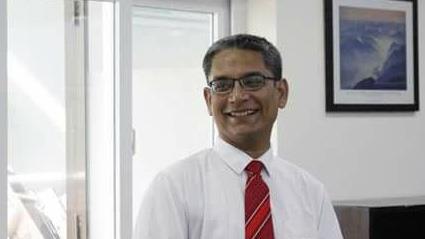4/5/2018 12:00:00 AM - 10:29
Code: 749
Print
Share
Indian economist forecast bright, rosy economic prospects for Iran by 2025

Mehr News Agency
“Such a high estimate may seem daunting, but countries like China and Malaysia achieved the decadal double-digit growth in the initial years of their growth-journey,” he maintained.
Elaborating on the capabilities of different sectors of the Iranian economy, he said, “it is estimated that around 54% of gross domestic product (GDP) comes from services, mainly from trade and transport sectors.”
The expert said that services could also include ramping up the quality of skill-centers, to improve productivity and employment. 'All these would expand its addressable consumer-base and purchasing-power.”
As for the share of industrial sector in improving Iran’s growth rate, Aiyer said that “around 36% of Iran’s GDP comes from industry, in line with the average 30-35% seen in large emerging markets. So, if Iran’s industry has to hold itself at the 30% proportion, it has to grow at bigger rate.”
“In Iran, import comprised 21% of GDP, which is 60% of its share of gross investment. This is similar to the experience of recent industrializing nations, who saw their share of imports to be 50-60% of their share of investment. Iran has to continue this trend.”
Emphasizing the need to improve the agriculture productivity, he said, “For Iran to achieve productivity improvement, it has to re-skill unproductive labor for high-growth sectors like construction, transport and retail.'
On the areas that Iran has to invest to achieve the goal, he said “Iran needs affordable housing, urban transport and completion of economic corridors that would connect its commercial zones with the underdeveloped districts.”
